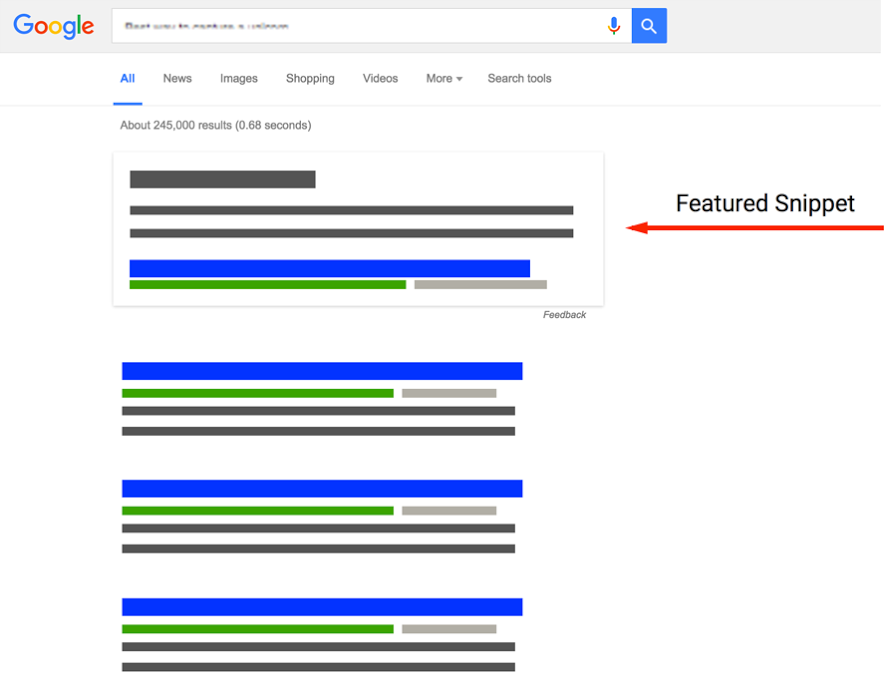According to Internet Live Stats, there are an average of 78,347 Google searches every second, with more than half of those being question-based keywords. Don’t you think you should be putting more focus on question keyword optimization?
Google is changing its algorithm every day, but the importance of questions remains the same. This makes sense because Google is a search engine and you go to a search engine to ask questions! According to an article from WordStream, question keywords are more likely to get your site in more featured snippets—aka position zero when it comes to search results—with a fairly large piece of search-result real estate. The issue, though, is you’re competing with Wikipedia and Google itself, so ranking for simple question queries may be difficult. Targeting more complex question queries gives you a larger chance of ranking in position zero.

Image courtesy of SEMrush
So what’s a featured snippet? Currently, there are three types:
- Paragraph featured snippet: Provides a text-based answer to a question featuring a box with a paragraph of text and an image on the inside.
- List featured snippet: Provides a step-by-step, bulleted or numbered list to guide the user through a process or provide multiple answers.
- Table featured snippet: Provides an answer in the form of a table, usually for questions regarding a unit conversion.
Additionally, there are three types of question keywords:
- Direct answer questions: These are the questions that will have a direct and simple answer. They usually begin with “who, what, where, why, which, and when.” By using semantic search technology, (predicting a user’s intent by using context) Google can provide a direct answer to the question. These search results usually provide a one-word answer with an extended paragraph explanation below. In these questions, the user’s intent is to get a short and concise answer.
- Short answer questions: These are the questions that have a slightly more complex answer. Usually beginning with “why” or “can,” these search results provide an accurate answer to the question being asked in a paragraph form. For these questions, the user’s intent is to get an explanation.
- Long-answer questions: These are the questions that provide a step-by-step, procedure-based answer. In these questions, the user’s intent is to learn a procedure.
By targeting the more complex questions and providing smarter answers than anyone else on the web, you ultimately become the “expert” in both the eyes of your visitors and of the Google algorithm. According to SEMrush, targeting related question keywords to your business is more likely to drive higher-quality traffic to your site.
Do you need help adding question-based keywords to your site and optimizing for search engines? Learn more about our search engine optimization specialty here.










